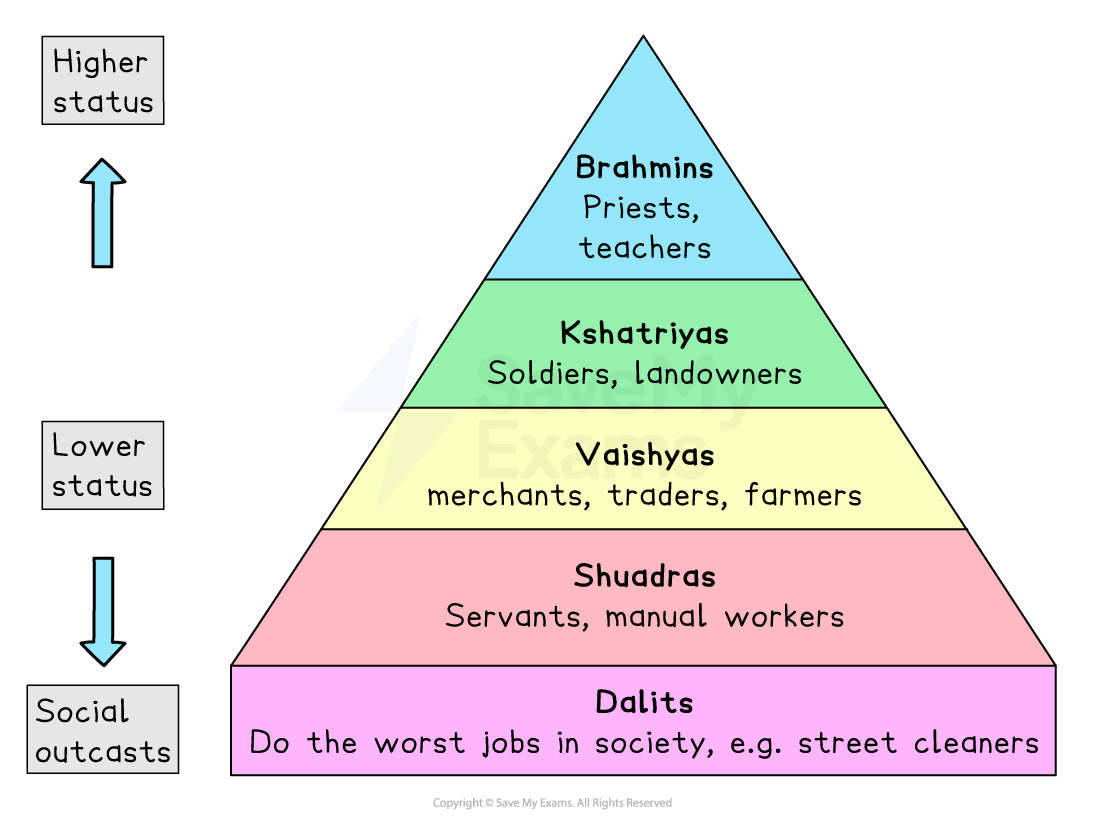The Marxist View of Religion (AQA A Level Sociology): Revision Note
Exam code: 7192
Marxism & religion
Marxists argue that religion is an ideology that serves the ruling class
Religion is a conservative force, as it maintains social stability by creating false consciousness among the working class
Religion as ideology
Religion is a belief system that distorts reality in ways that benefit the ruling class
The ruling class controls the production and spread of ideas through institutions such as the Church, the education system, and the media
Religion promotes ideas that:
inequality is natural, God-given, and unchangeable
suffering is virtuous, and the poor will be rewarded in the afterlife if they accept their position
By teaching obedience and self-sacrifice, religion promotes false consciousness, which helps the ruling class maintain power
Lenin (1870–1924) described religion as 'spiritual gin' — an intoxicant handed to the masses to confuse and pacify them
Althusser (1971) saw religion as an ideological state apparatus, legitimating class inequality and supporting capitalist control
Religion & alienation
Under capitalism, workers are alienated:
from the product of their labour
from one another
from their human potential
Alienation is greatest in factories where repetitive, meaningless work dominates
Religion provides an escape by offering hope and meaning, but this only masks the underlying exploitation
Religion as the 'Opium of the Masses'
Marx (1844) claimed that religion acts like a drug: it dulls the pain of exploitation without tackling its root cause
Comfort is provided through beliefs such as:
an afterlife
suffering as a test from God
Religion encourages workers to accept inequality rather than resist it
By offering illusory happiness, religion distracts from reality and prevents real social change
In this way, religion promotes social stability by discouraging revolution
Applications of Marxism
Hinduism & the caste system:
Hindus believe that they are born into their caste (similar to social class) as a result of karma from a previous life
Those in lower castes are told to accept inequality as divine punishment, with the promise of reward in the next life

Christianity vs socialism
Engels (1895) claimed that socialism and Christianity have some similar features
Both ideologies appeal to the poor by offering a better life
Christianity offers salvation in the afterlife, while socialism promises change in the here and now
Religion prevents meaningful change by focusing on the next world instead of this one
Marxists argue that in a communist society, where inequality no longer exists, religion would no longer be needed
Evaluation of the Marxist view of religion
Strengths
Links religion to power and inequality
Leach (1988) notes that religion is tied to elites
E.g., the monarch is head of the Church of England, and most bishops are privately educated — showing religion is dominated by the wealthy
Religion appeals to the poor and insecure
Norris & Inglehart (2004) suggest that people facing existential insecurity (poverty, lack of healthcare/welfare) are more likely to be religious
This may explain why the USA, with weaker welfare support, is more religious than the UK
Criticisms
Overemphasis on oppression
Religion doesn’t always reinforce ruling-class power; it can also be a source of resistance and change (e.g. Liberation Theology in Latin America)
By focusing only on control, Marxists ignore the ways religion may empower the oppressed or give a platform for protest
Secularisation
In many societies, religion’s influence has declined, making it less effective as an ideological tool
Alternative belief systems (e.g., secular humanism, nationalism) may now provide legitimacy for inequality instead
Too deterministic
Marx assumes religion always manipulates the working class into obedience, but people can reinterpret or resist religious teachings
Religion has also been used to promote social justice and equality (e.g., the civil rights movement in the USA led by Christian leaders)
Communist societies remain religious
Marx predicted religion would disappear under communism, but it has persisted in communist states, showing his theory was too simplistic
Christianity is actually growing in countries like China, predicted to become the largest Christian nation by 2030.

Unlock more, it's free!
Was this revision note helpful?